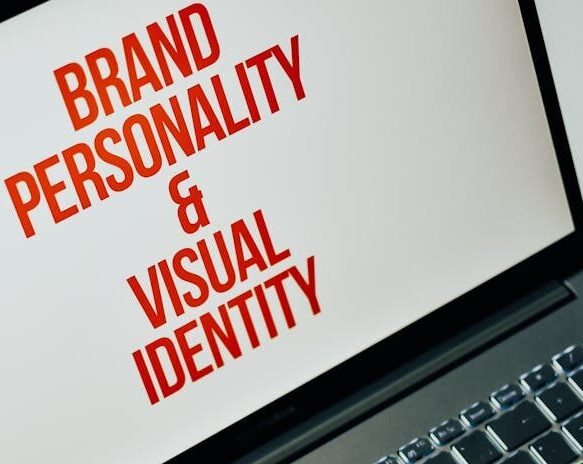Write Us: hello@ali5.org
Data Privacy in 2025: How Much Do Apps Actually Know About You?
In 2025, how private is your personal data? Find out what your favorite apps are collecting, how they're using it, and simple steps to protect your digital footprint.

Let’s get straight to it: your apps know more about you than you probably realize. In 2025, we’ll have moved far past basic tracking like your location or search history. Apps now collect a granular level of data that paints an intimate portrait of your life: who you talk to, what your daily routine looks like, how you feel based on your screen swipes, and even how fast you walk.
That’s not paranoia. That’s data.
So, how much do apps actually know about you today? And more importantly, what can you do about it without having to ditch the digital world completely?
Let’s break it down.
What Kind of Data Are Apps Collecting in 2025?
1. Behavioral Biometrics
This goes beyond what buttons you press. It includes how you hold your phone, your typing rhythm, how you scroll, how long you pause on certain posts, and subtle movements that are unique to you. Apps use this to verify your identity or personalize content, but it’s also a goldmine for profiling.
2. Emotional Patterns
Your facial expressions on camera, voice tone during calls, and even the emojis you frequently use are being logged and analyzed. AI can now predict your emotional state with decent accuracy, especially when paired with your activity patterns.
3. Cross-App Tracking
Apps you think are unrelated often share data with each other. For instance, a fitness app might sync with your food delivery app to better recommend meals, but that data exchange also creates a massive web of insights about your lifestyle.
4. Location & Proximity Monitoring
It’s not just about where you are; it’s also about how long you stay somewhere, who else is there, and what you’re likely doing. Your phone knows when you’re at work, at the gym, or stuck in traffic, and this data is monetized in real-time.
5. Purchase Behavior & Financial Habits
Whether you’re shopping online, using tap-to-pay at a café, or browsing items without buying, apps track it all. Some apps even predict when you’ll likely run out of a product based on past purchases.
So, Who’s Using This Data?
Let’s be blunt: almost everyone. Advertisers, of course, are the obvious players. But also insurance companies, recruiters, law enforcement in some regions, and political campaigns.
Data brokers build massive profiles of users and sell them to third parties, often without you ever realizing it. Your data isn’t just being used to sell you stuff. It could influence your credit score, determine your job opportunities, or impact the price you pay for health insurance.
The Line Between Convenience and Surveillance
There’s no denying that some data collection makes life easier. Google Maps reroutes your trip in traffic. Spotify suggests a song that hits exactly right. Your health app reminds you to drink water.
But convenience has a cost. The more personalized your experience, the more intimate the data being used to curate it.
Here’s the thing: the apps aren’t just collecting your data, they’re interpreting it. That interpretation can lead to assumptions about who you are, what you need, or even what you believe. And that’s where the power dynamic gets lopsided.
Can You Still Control Your Digital Privacy?
It’s tough, but not impossible. Here are practical steps that actually work in 2025:
1. Start with Permissions
Stop mindlessly tapping “Allow.” Go into your phone’s settings and disable access to microphone, camera, location, contacts, and motion sensors unless they’re absolutely essential for the app’s function.
2. Use App Alternatives
Privacy-first apps are gaining ground. For messaging, try Signal instead of WhatsApp. For browsing, use DuckDuckGo or Brave instead of Chrome. They don’t log your activity or sell your data.
3. Turn Off Personalized Ads
On both iOS and Android, you can now opt out of ad personalization. It doesn’t stop all tracking, but it limits the way your data is used to target you.
4. Log Out More Often
Apps track you far less when you’re not signed in. If you’re browsing something you don’t want tied to your identity, log out or use a private tab.
5. Watch for App Clusters
Avoid using apps owned by the same parent company (like Meta) if you’re trying to minimize data sharing. These apps often have backdoor integrations for cross-data use.
What’s Next: Regulation or Revolution?
The laws are catching up slowly. In 2025, we’ve seen stricter data privacy regulations like Europe’s updated GDPR 2.0 and new U.S. digital privacy bills that force apps to disclose more about what they collect and why. But enforcement is still patchy.
Meanwhile, users are becoming more privacy-aware. There’s growing demand for “data minimalism” apps that only collect what’s absolutely necessary. Privacy has become a selling point, not an afterthought.
Still, until regulation becomes airtight and universal, the responsibility is largely on you.
Final Thoughts
You don’t need to delete every app or live off-grid to reclaim your privacy. But you do need to be intentional. Ask yourself: Does this app really need this access? Am I okay with how my data is being used?
The truth is, most apps know more about you than your friends or family do. They know what you like, what you fear, when you’re vulnerable, and how to nudge you toward a click or a purchase.
Awareness is your first line of defense. Control is your second. And in 2025, both are more essential than ever.







